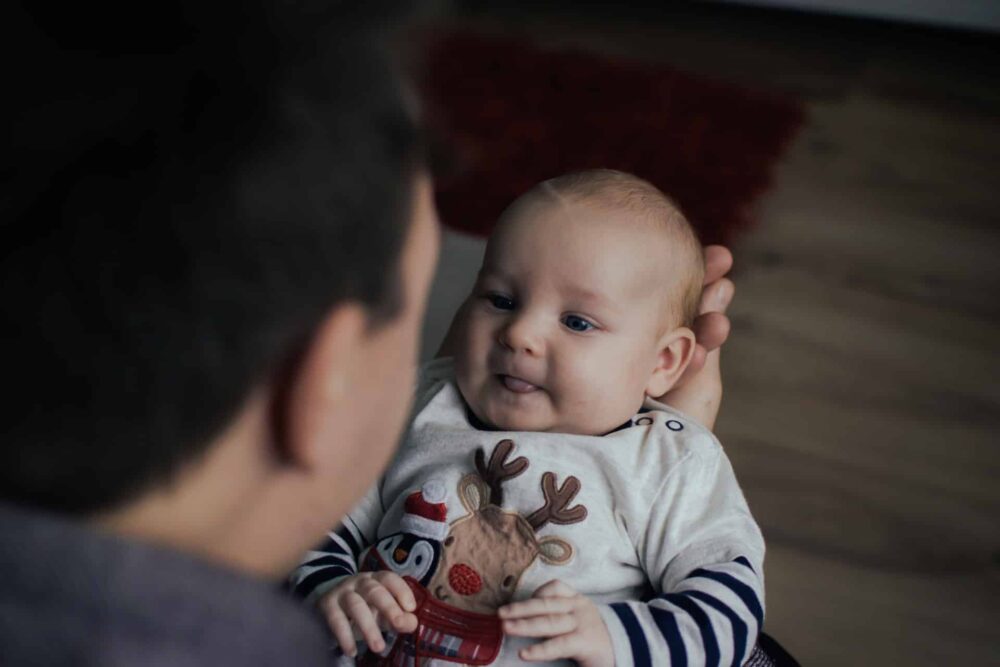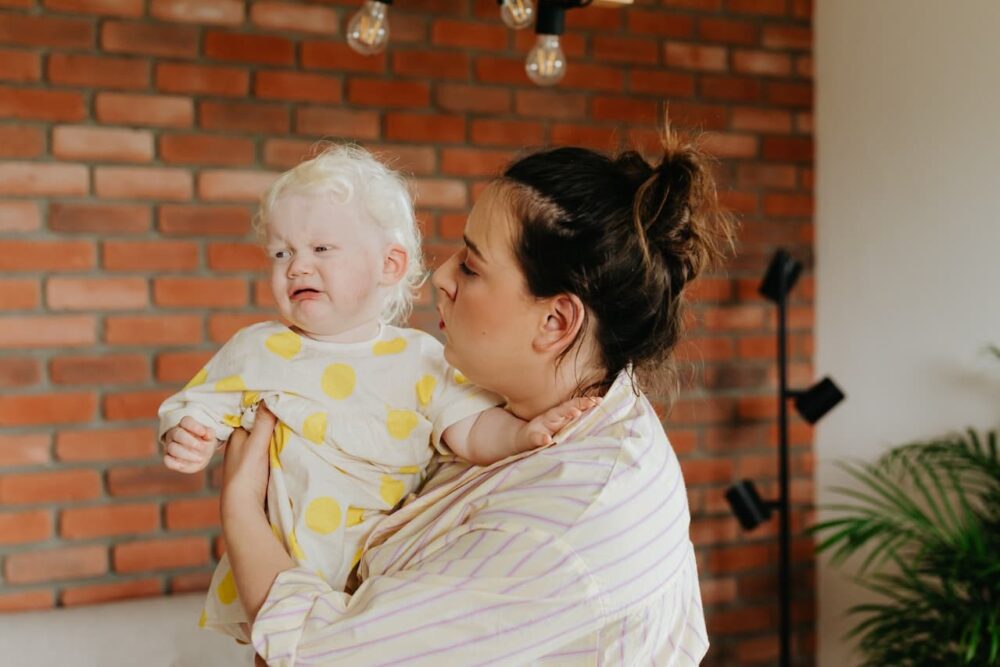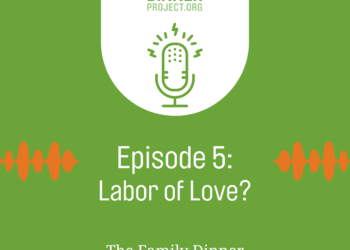[ad_1]
Key takeaways for caregivers
- Thoughts-mindedness is the power of oldsters to precisely learn and label their kids’s ideas, emotions, and needs.
- Each moms’ and fathers’ mind-mindedness within the first years of youngsters’s lives play an vital function in kids creating the power to control their feelings and behaviors.
- Dad and mom can domesticate mind-mindedness by paying shut consideration to their kids’s conduct and taking time to mirror on and label their kids’s ideas, needs, and feelings.
What’s mind-mindedness parenting?
I’ve vivid recollections of the primary weeks of motherhood, feeling anxious and confused about why my child was crying. I puzzled: Why is she crying? How is she feeling? Does she need one thing apart from meals? Perhaps she simply desires to be cuddled? As time handed, I started to know my child’s needs and feelings extra clearly. Speaking to different new dad and mom, I spotted that parents differ in how much they can understand their children’s minds.
This capability of oldsters to consider their kids as people with their very own ideas, emotions, and needs, and to label these experiences of their interactions with them is known as mind-mindedness. Dad and mom with this capability precisely learn their infants’ minds and label their psychological states. This may contain reflecting on a toddler’s emotional experiences or verbalizing a toddler’s needs.

Photograph: Egidijus Bielskis. Unsplash.
For instance, when a toddler begins crying after their toy broke, a mind-minded father or mother may say, “You appear upset that your toy broke. You needed to play with this toy.” In distinction, dad and mom who misread their kids’s psychological states (e.g., assuming the kid is crying as a result of they’re drained and don’t wish to play anymore) exhibit non-attuned mind-mindedness.
How does mind-mindedness parenting assist kids?
Parental mind-mindedness performs an vital function within the growth of youngsters’s self-regulation. Self-regulation is a critical skill that allows kids to manage their emotions and behaviors in response to what a state of affairs calls for (Eisenberg, 2000; Kochanska, 1993). As kids attain the age of 4 or 5 and start college, the calls for for self-regulation improve. Beginning a these ages, kids want to remain centered, take note of studying targets, and actively take part in studying within the classroom so self-regulation turns into especially important (e.g., Nota et al., 2004).
Boosting self-regulation
Self-regulation in preschool shouldn’t be solely vital for later educational achievement – accumulating proof means that it is usually essential for children’s social adjustment and psychological well being. Preschool-age kids who can adequately regulate their feelings and behaviors have extra profitable relationships with others, are extra socially competent, have more healthy life habits, and are at a decrease danger for creating psychological issues (Robson et al., 2020).
The power of oldsters to consider their kids as people with their very own ideas, emotions, and needs, and to label these experiences of their interactions with them is known as mind-mindedness.
A number of research have examined the role of parental mind-mindedness in the development of self-regulation in infants and toddlers. They’ve proven that moms’ and fathers’ mind-mindedness is related to rising self-regulation skills in infancy and toddlerhood (Cheng et al., 2018; Gagné et al., 2018; Senehi et al., 2018; Zeegers et al., 2019). Nevertheless, it stays unclear whether or not parental mind-mindedness at these ages performs an vital function for self-regulation in preschoolers. That is particularly vital to find out since self-regulation at preschool age predicts varied life outcomes.
The connection between parental mind-mindedness and preschoolers’ self-regulation
My colleagues and I got down to handle this query. In our recent study (Nikolić et al., 2022), we investigated whether or not moms’ and fathers’ mind-mindedness within the first three years of a kid’s life predicts the event of self-regulation at 4 and a half years.
We predicted that acceptable mind-mindedness in dad and mom would assist kids develop good self-regulation as a result of kids would study their inside states from dad and mom who precisely mirror on and label their psychological states (e.g., when a toddler is gloomy and the dad and mom mirror on the kid’s disappointment, the kid turns into conscious of the sensation and begins to know it). In distinction, non-attuned mind-mindedness in dad and mom would hinder the event of self-regulation as a result of kids whose dad and mom misread their ideas, needs, and emotions could really feel misunderstood and wouldn’t be taught to know their psychological states from their dad and mom.

Photograph: Karolina Grabowska. Pexels.
We assessed moms’ and fathers’ mind-mindedness within the first three years on a number of events by observing their interactions and conversations with their kids throughout playtime. We then measured preschoolers’ self-regulation on the age of 4.5 in a number of methods. First, we requested dad and mom about their notion of their kids’s effortful control, or their capability to voluntarily focus consideration and suppress an inappropriate response or activate an acceptable response to regulate to a state of affairs (Eisenberg, 2005). For instance, the power to prioritize sitting quietly and listening to the instructor over taking part in with a good friend is a side of effortful management.
Second, the youngsters accomplished behavioral tasks within the lab, the place we requested them to maintain their palms positioned on a mat on the desk whereas selecting a prize from a field crammed with small toys or a field crammed with candies (Kochanska et al., 1997). This activity required kids to comply with directions and inhibit a dominant response (i.e., touching or pointing to a toy or sweet). Lastly, we measured kids’s coronary heart fee variability throughout relaxation – a bodily response related to physiological regulation (Porges, 1997).
Thoughts-mindedness within the first three years of a kid’s life
Each moms’ and fathers’ mind-mindedness within the first three years of their kids’s lives contributed considerably to their preschoolers’ self-regulation. Fathers who had been extra mind-minded with their infants and toddlers had kids who had been higher at self-regulation once they began college. In distinction, moms and dads who had been extra non-attuned and sometimes misinterpreted their kids’s psychological states had kids who had been much less in a position to self-regulate once they began college.
Fathers who had been extra mind-minded with their infants and toddlers had kids who had been higher at self-regulation once they began college.
These findings present the primary proof that each moms’ and fathers’ mind-mindedness within the early years issues for kids’s self-regulation in preschool. Additionally they emphasize the function of fathers’ attunement to their kids’s psychological states in early years for the event of self-regulation at preschool age.
How can dad and mom domesticate mind-mindedness?
What does this imply for folks? Whereas it is probably not stunning {that a} sturdy parent-child bond has constructive results on a child’s socioemotional development, our examine’s findings spotlight the distinctive significance of each moms and dads in being aware of their kids’s inside experiences to advertise self-regulation early in life.
Dad and mom pays shut consideration to their kids’s conduct and cues, and take time to mirror on and label their kids’s ideas, needs, and feelings. By doing so, dad and mom might help their kids develop an understanding of their very own inside life, making self-regulation simpler. And one of the best half? It’s by no means too early to begin this follow – even speaking about psychological states together with your youngster earlier than they’ll communicate might help them develop this vital life ability.
[ad_2]
Source_link





